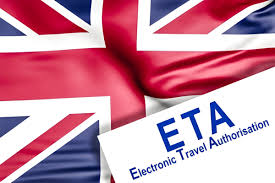Beach Wars: Are EU and Italy close to resolving beach concession feud?

Rome: For almost two decades, the European Commission has been locked in a legal tug-of-war with Italy over its beach concession practices, accusing the peninsular nation of lacking transparency and breaching competition rules.
Italian governments, both left- and right-leaning, have staunchly resisted EU directives requiring competitive tendering, persistently renewing existing beach concessions.
This prevents competitors from entering the market.
After the latest extension approved by the far-right government of Giorgia Meloni until the end of the year, Rome has now run out of options and will be forced to comply with EU rules from early 2025.
“We are in a phase of total uncertainty and we want our rights to be preserved,” said Susanna Barbadoro, who represents the third generation of owners of a beach concession in Ostia, a popular seaside destination near Rome.
Beach concessions have been passed down from one generation of a family to the next for decades, creating what critics consider to be a sort of monopoly and a symbol of Italy’s resistance to economic reforms.
Costs for beach-goers vary along the Italian coasts.
At the most basic establishments, renting two chaise lounges and an umbrella for the day can cost €25.
On the other hand, fancy resorts such as Capri or Puglia’s Salento can charge several hundred euros.
The beach operators complain that they have made huge investments into making their establishments comfortable for their returning customers and are now crying out for compensation.
Barbadoro was one of hundreds of beach operators who on 9 August went on strike, closing her umbrellas symbolically for two hours in the early morning.
“We ask that operators who have been in this business for years maintain a pre-emption right (in the tenders) or receive some sort of compensation if they fail to obtain the concession,” she said.
Economists, however, say beach concession owners have long exploited their privileged position, returning to the Italian state only a tiny portion of their proceeds over the years.
According to the Italian Court of Auditors, from 2016 to 2020 the Italian public administration received around €97 million each year from the country’s 12,166 beach concessions.
This means that, with an average revenue estimated at €260,000, those businesses have been paying only around €7,600 a year for their concessions.
“Competition would advantage everybody, particularly in this area where we’re not talking about private properties, but about public domain that these businesses are getting almost for free,” said economist Pietro Paganini.
Paganini also said that Italian governments of all political orientations have for years protected the owners of beach concessions, as they represent a precious pool of votes.
Last year, the Meloni government submitted a mapping report to Brussels in a final attempt to justify its failure to comply with the so-called Bolkestein directive, approved in 2006 to boost competition.
According to the data provided, 33% of the Italian coastline is under concession, suggesting there is no “scarcity of beach resources” and therefore no need for the competitive tenders required by EU rules.
However, EU representatives have pointed out that the mapping takes into account 11,000 kilometres of coastline, including rocky shores and non-swimmable areas that would never be eligible for concession.
Members of “Mare Libero” (Free Sea) – an association that since 2019 has organised protests to reclaim free space on Italian beaches – hope that the introduction of new rules in the bidding process will also help guarantee beach-goers enough free access.
“We want the Italian state to reestablish a fair quantity of free beaches, which has to be at least 50%, while the remaining 50% is under concession,” said Roberto del Bove, coordinator of Mare Libero for the central Lazio region.





